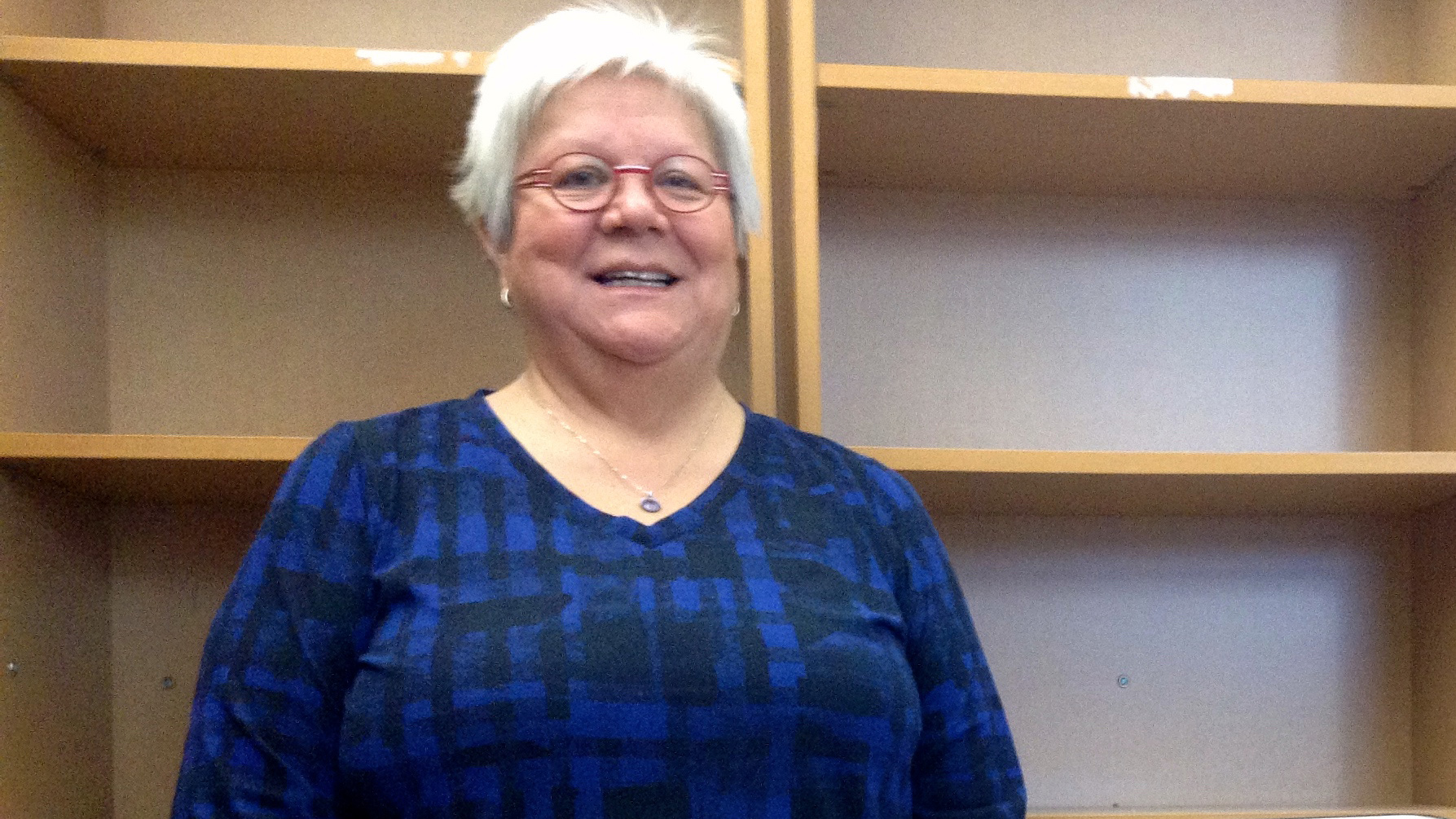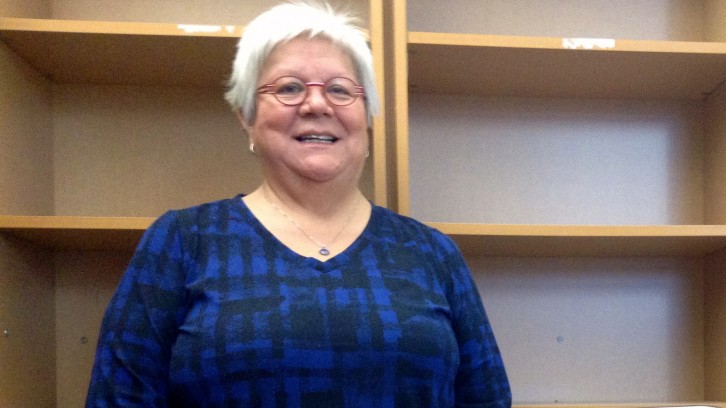Indigenous Elders
Dalhousie’s Elders in Residence off to a busy start
Indigenous elders offer guidance and support to students and staff

caption
Geri Musqua-LeBlanc is the co-ordinator of Dalhousie's Elders in Residence program.
caption
Geri Musqua-LeBlanc is the co-ordinator of Dalhousie’s Elders in Residence program.Geri Musqua-LeBlanc, co-ordinator of Dalhousie University’s Elders in Residence (EIR) program, is swamped—and she’s glad to be.
“It makes my heart happy,” she says, “to know that people want to hear our stories.”
EIR began in December, and Musqua-LeBlanc is one of seven indigenous elders involved. The program lets students, faculty and staff meet with these elders—from indigenous communities across the country—for support, guidance or help performing a ceremony.
Diana Lewis, co-ordinator of Dalhousie’s indigenous studies program and one of the leaders behind EIR, says demand for the elders’ time has been higher than expected. So far students in indigenous studies, as well as faculty and staff wanting ceremonies for conferences, have been the most interested.
Students come to see the elders for many reasons, Musqua-LeBlanc says. During exam season it’s stress; other times it’s personal issues or homesickness. The elders can offer wisdom to these students, or perform a smudging ceremony, meant to cleanse the body, mind and spirit. Smudging involves the burning of four sacred medicines: sage, sweetgrass, cedar and tobacco.
To meet with an elder, Dalhousie community members can set up an appointment by phone or email, or drop in during Musqua-Leblanc’s office hours on Tuesdays and Thursdays in the McCain building. When requesting to meet, the participant should present a gift of tobacco, which is considered sacred medicine. The elder, or the EIR co-ordinator, will accept or decline the request.
A student’s perspective
Dylan Letendre, an international development studies and economics student, has made use of EIR. He’s Métis from Saskatchewan, and co-president of the Dalhousie Aboriginal Students Association.
In Letendre’s community, elders teach children their traditions and remain a source of guidance throughout adulthood. Elders are those who’ve spent their entire lives reflecting on the meaning of their indigenous culture, and its relation to the world.
“Anytime I learn something new in the university context, I want to find out what is (my culture’s) understanding of this?” says Letendre.
Having that conversation helps Letendre learn, both about his academic subject and his traditions back home.
“If I get to go to university and I get to go to my ceremonies, my culture, I can then translate my culture to the rest of the world. And that’s why I wanted to come to university in the first place,” Letendre says.
Non-indigenous students welcome
Though they’re more hesitant, non-indigenous students are also taking advantage of the program, says Lewis.
“If students find themselves in uncomfortable situations as they try to be an ally, they can reach out to the elders,” she says.
Letendre agrees that EIR isn’t just a resource for indigenous students, but rather for the community as a whole.
“I want non-aboriginal people to understand that they have a place in our community,” he says.
Future plans
The program is being funded for the next three years by Dalhousie’s Special Initiatives Fund. That funding is supplemented by payments elders receive, generally around $200 according to the EIR program protocol, when they perform smudgings or prayers at events.
In the past, Letendre says, elders wouldn’t have been paid at all. Instead, their basic needs like food and shelter would’ve been taken care of by their community, a reality that just isn’t feasible anymore.
Lewis says EIR is just getting started, but room for growth exists.
Musqua-LeBlanc says even seven elders—up from five when the program started—isn’t enough. She’s always on the lookout for more.
As Musqua-LeBlanc searches for interested elders, Lewis says Dalhousie’s Aboriginal Council is looking to expand and strengthen the indigenous presence on campus—someday, maybe, in the form of an aboriginal centre.
The university hasn’t yet replied to this reporter’s questions about if such a facility is in the works.
Some universities in the Maritimes have aboriginal centres on campus, like the University of New Brunswick’s Mi’kmaq-Wolastoqey Centre and Cape Breton University’s Unama’ki College.
With expansion, though, comes the risk of spreading elders too thin.
“We only have so many elders, how much stress do we put on them?” says Letendre. “I would say that (EIR) is a great first step. And I think that we need to find the resources to increase that exposure to more non-aboriginal people.”

